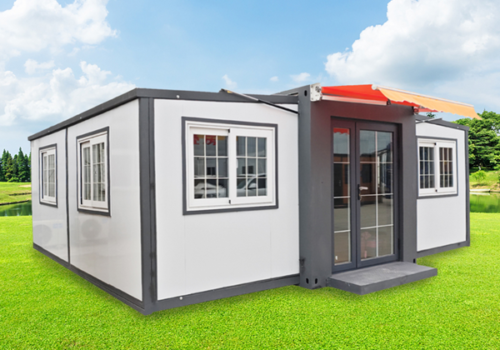The Pros and Cons Of Stone Wall Cladding
Stone cladding is a refined or decorative layer of natural or artificial stone covering the walls of a building made of cement, steel, or concrete. Numerous natural stones, such as sandstone, granite, and slate, are used for stone cladding. Materials like veneers that are lightweight and appear like real stones can also be used for stone cladding.
Stone cladding offers benefits that are similar to those of a full-scale stone building. But before deciding whether it is suitable for you, it is necessary to have a thorough understanding of the advantages and disadvantages of stone cladding.
Advantages of stone wall cladding
Stone cladding has several advantages. These include:
Beauty
For countless years, stones have been extensively utilised in construction due to their natural and unrivalled beauty. The same unique aesthetic look can be attained using stone cladding. It also gives a natural and fresh ambience to the interior of the building. Stone cladding can give a modern yet timeless appeal to the building, irrespective of whether it is used for commercial or residential purposes. If you use stone cladding for your home, it is a foolproof way to impress your friends and guests. It gives a touch of nature to any structure or building in which it is installed.
Durability
Natural stone has high strength and is extremely durable. This can be seen from the numerous ancient buildings around us. Investing in stone cladding is a good way to ensure that the features of your home or commercial building stay unchanged for a long time. They are resistant to scratches, abrasions, and fire. It is extremely resistant to weathering and harsh climates like extreme heat, frost, and rain. This makes it suitable for all kinds of climates.
Insulation
Stone cladding not only improves the aesthetics of the building and makes it more attractive, but also provides optimal insulation for the building. This will substantially reduce the overall heating and cooling charges. Natural stone is also great for efficient protection against adverse weather since it contains natural minerals like calcium and silicate. This will also reduce the excessive seasonal energy charges that can come with additional heating or cooling required.
Available in different styles
A wide variety of patterns and colours are available for natural stones. Due to this diversity, it is possible to craft these stones into designs that fit different architectural styles. The different colours, shades, formats, and patterns available in stone cladding can be used to create the perfect look for both the interior and exterior of the building. You can also use it to create the aesthetic look that appeals the most to you.
Easy installation
Usually, natural stones are carved into slabs. With improved technology, the slab edges are currently becoming more precise, making installation easier and creating a neater appearance. Larger slabs of stone, such as marble or granite, are also available. Larger slabs are simpler to apply and maintain, though a bit costlier.
Easy maintenance
Another significant advantage of adopting stone cladding is its ease of maintenance. Stone-clad structures are simple to maintain because of their endurance, toughness, and resistance to the natural elements. The dirt and stains can be easily removed with plain water. A wash using a regular detergent solution will keep the stone shining for years. Strong wipers can easily clear any snow or rainwater that has accumulated on the outside or inside of the building. This will also help reduce the long-term maintenance charges of the building.
Improves the value of the property
One of the main benefits of stone cladding is that it improves the value of the property. Every property owner wants to get the highest price when they sell their property. Stone cladding enhances the strength, adaptability, and longevity of the building walls, which raises the value of the building. Natural stones can give the structure a classic or modern appearance, raising the value of the property.
Disadvantages of stone wall cladding
Stone cladding also has some disadvantages. Some of them include:
Higher price
Natural stones cost more than other conventional wall coverings since they are natural materials that are only found in certain geographic locations. If you are looking for specific stones, like marbles from the Carrara region, the price of procurement and installation of the stones can become very high.
Needs structural substrate
A structural substrate is necessary for natural stone cladding. This will result in an increase in the overall installation cost.
Sealing
Sealing is an important process when installing stone cladding. This step is crucial for the life of the wall and cannot be sidestepped. Sealing also adds a bit to the maintenance cost. But spending a little money on the sealing process can help extend the life of the wall for a long time.
Heavy
Natural stones have uniform properties throughout, making them heavier compared to other wall cladding such as timber or tiles. This means that the stone wall cladding installation will require the implementation of proper weight distribution techniques, making it more complex.
Needs professional installation
Stone cladding cannot be done as a DIY project. It needs the assistance of a Perth Stone Wall Cladding professional to eliminate issues that can happen due to poor installation. If improperly installed, your stone can be damaged due to seeping moisture.
Labour and time-intensive
Stone cladding is an extremely labour-intensive project. It takes a lot of time to complete, even with the help of expert professionals.
Cleaning products
Even though day-to-day cleaning of stone cladding is simple, if you are looking for chemical cleaners, you cannot use the usual strong cleaning agents. You will need specialised cleaning materials designed for stone cladding to avoid damage to the surface of the structure. This can be a hassle for the building owner.
In Conclusion
Stone cladding has several advantages and disadvantages. But if you can invest a little money, then adopting stone cladding for your building is an excellent way to provide a timeless look to your building. It can also drastically increase the value of your property. It can serve as a long-term investment since you need to do little maintenance on properly installed stone cladding. You will also benefit monetarily from the reduced energy charges owing to the superior insulating properties of stone cladding. In short, it is a great investment that can last for several years.



